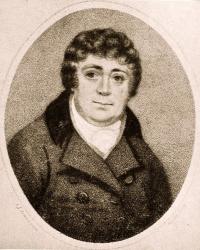Planning worship?
Check out our sister site, ZeteoSearch.org,
for 20+ additional resources related to your search.
- |
User Links
Search Results
O children, hither do ye come
Appears in 16 hymnals Used With Tune: ST. ANN'S
O children, hither do ye come
Children, come, hither come
Hymnal: Bible Songs #41 (1879) Meter: 8.6.8.6 First Line: O children, hither do ye come Topics: Childen Advice to Scripture: Psalm 34:11 Languages: English Tune Title: [O children, hither do ye come]
Children, come, hither come
Precepts For Childhood
Hymnal: Bible Songs #70 (1901) First Line: O children, hither do ye come Refrain First Line: Children, come, hither come Topics: Adoption; Assurance Desired; Children instructed; Christians Christ the Life of; Christians Duties of; Christians Evangelists; Godly Fear Exhorted to; God Hearer of Prayer; Gospel Preaching of; Gospel Sanctifying and Saving; Holiness; Life A Gift from God; Parents and Children; Prayer God Hears; Prayer Promises to; The Righteous Reward of; Sin Salvation from Scripture: Psalm 34:7-9 Languages: English Tune Title: [O children, hither do ye come]
Precepts For Childhood
O Children, Hither Do Ye Come
Hymnal: The Mennonite Hymnary, published by the Board of Publication of the General Conference of the Mennonite Church of North America #584 (1940) Scripture: Psalm 34 Tune Title: ARNOLD
O Children, Hither Do Ye Come
Thomas Augustine Arne

1710 - 1778 Person Name: Thomas Augustine Arne, 1710-1778 Composer of "ARLINGTON" in The Book of Praise Dr. Thomas Augustine Arne was born March 12, 1710, in London; became early celebrated as a composer, and established his reputation by settling Milton's "Comus" to music - light, airy, and original; he composed many songs, and nearly all his attempts were successful; died March 5, 1778, aged 68.
A Dictionary of Musical Information by John W. Moore, Boston: Oliver, Ditson & Company, 1876
Thomas Augustine Arne
Samuel Arnold

1740 - 1802 Person Name: Samuel Arnold, 1740-1802 Composer of "ARNOLD" in The Hymnary of the United Church of Canada Dr. Samuel Arnold, an English musician and composer; born in London, Aug. 10, 1739; composed for the theatre, the church, and also oratorio music; succeeded Dr. Nares as organist; died at Westminster, Oct. 22, 1802.
A Dictionary of Musical Information by John W. Moore, Boston: Oliver, Ditson & Company, 1876
Samuel Arnold
George Frideric Handel

1685 - 1759 Person Name: George Frederic Handel Composer of "SOLOMON" in Christadelphian Hymn Book George Frideric Handel (b. Halle, Germany, 1685; d. London, England, 1759) became a musician and composer despite objections from his father, who wanted him to become a lawyer. Handel studied music with Zachau, organist at the Halle Cathedral, and became an accomplished violinist and keyboard performer. He traveled and studied in Italy for some time and then settled permanently in England in 1713. Although he wrote a large number of instrumental works, he is known mainly for his Italian operas, oratorios (including Messiah, 1741), various anthems for church and royal festivities, and organ concertos, which he interpolated into his oratorio performances. He composed only three hymn tunes, one of which (GOPSAL) still appears in some modern hymnals. A number of hymnal editors, including Lowell Mason, took themes from some of Handel's oratorios and turned them into hymn tunes; ANTIOCH is one example, long associated with “Joy to the World.”
Bert Polman
George Frideric Handel


 My Starred Hymns
My Starred Hymns


